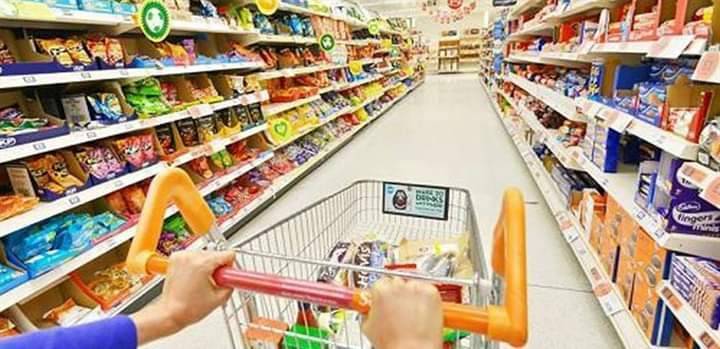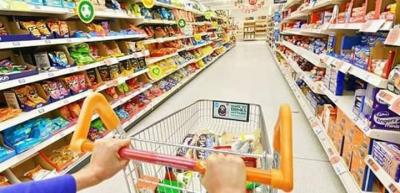The scenes broadcasted from in front of the bread ovens yesterday stripped away the last remaining "straws" from the shame of the system. They proved that there is no limit to its inefficiency and negligence assuming good intentions, and to its greed and moral emptiness if we satisfy our conscience with an accurate description of reality. Tens of billions were spent in a record time on fictitious support, while food security remains a "mirage," which only moves further away whenever we pursue it. The amount spent on direct support for goods since the beginning of the crisis (specifically from mid-2020 until September 2021) reached approximately $17 billion, meaning that more than $1 billion was spent monthly to facilitate citizens' access to cheap goods. In contrast, a study titled "Addressing Food Insecurity in Crisis-hit Lebanon" recently published, noted that 82% of the population lives in multidimensional poverty. Moreover, accessing food is becoming increasingly concerning for the majority amid rising local and global food prices and the depreciation of the lira.
**Negative Coping Mechanisms**
Until recently, a large portion of citizens managed to "survive without the essentials of life," according to a UNICEF report published last year. Following that, a study on 931 families in the first quarter of this year, conducted by the American University of Beirut, funded by the National Endowment for Democracy, under the title "Developing Evidence-Based Public Policies in Crisis Management," indicated the following results:
- 85% of families were forced to reduce the quantity of basic foods they purchase.
- 33% of adults skip some meals more than once a week.
- 33% of families cannot afford a meal containing meat, chicken, or fish at least once a week.
**Alternatives Have Disappeared**
The alternative for increasingly omitted meats and basic meals has primarily become bread and grains. These two components constitute 35 to 39 percent of daily caloric intake, as per the study "Addressing Food Insecurity in Crisis-hit Lebanon," which makes their availability in the required quantity and acceptable price necessary for families’ existence. However, even this simple basic component that citizens had settled for has not been provided by the authorities. Since last April, bread entered the battle of "Dahis" at the Ministry of Economy and the "Ghabra" of mills and ovens. Diverting support away from flour and restricting it to the production of Arabic bread dissatisfied producers, leading to a wide wave of rationing in bread sales in exchange for using supported quantities either for smuggling or for producing unsupported products to sell at market prices.
Despite all that we witness today, "the situation is expected to deteriorate and worsen further," according to Siham Abu Zaki, an expert in agricultural economics and contributor to the study "Addressing Food Insecurity." "It is easily observable how rapidly living conditions are deteriorating, with worsening conditions month after month. This is reflected in the increasing number of families having to continuously and increasingly cut back on the quantity and quality of their meals to maintain survival." Additionally, she notes that "the lack of transparency was clearly demonstrated during the recent wheat crisis, with unclear quantities and distributing methods between mills and ovens. There's a lack of coordination among ministries concerned with food security, political interference in distributing aid unfairly, market monopolies, and no intention to implement what is promised."
**The Bitter Solution**
Food security in its broad sense requires two essential conditions: the availability of food and ease of access to it. Lebanon lacks both concerning bread specifically. According to Farah Al-Shami, a researcher with the Arab Reform Initiative, "bread is missing due to support that encourages smuggling, storage, and monopolization; liberating it would make it available in the market but beyond the reach of many due to rising prices, especially in light of wages not being adjusted in Lebanese pounds while diminishing in foreign currency." This situation plunges the complex social and economic crisis into a closed loop that appears impossible to escape. Therefore, Al-Shami believes, "this crisis should be treated as a state of social emergency, allowing for the intervention of social protection programs of various kinds. This should start by establishing a social protection framework that enables all citizens to secure the needs for dignified living, primarily food, healthcare, and education. To achieve this, efforts should focus on enhancing social structures and increasing their resilience in dealing with crises, along with direct financial transfers to those in need."
**Obstacles**
However, the problem of the necessary social economic intervention to prevent the deterioration of food security lies in the existence of four primary obstacles, according to Al-Shami:
- The collapse of the national currency, making it impossible for large groups to access food.
- The government’s failure to provide alternatives for citizens whose incomes have collapsed due to financial deficits.
- The lack of political will for reform, as those in power benefit clientelistically from the existing situation.
- The waste and theft of public resources by successive rulers.
All of these factors make reliance on international organizations and entities like the World Food and Agriculture Organization (FAO) and the World Food Program... inevitable. However, Al-Shami opines that even these organizations no longer prioritize Lebanon, "due to the Russian war on Ukraine and focusing all attention on refugees in general, including the Syrians in Lebanon." Thus, the permanent alternative has become resorting to costly short-term solutions such as the International Bank loan approved yesterday in the Parliament for $150 million, which the Minister of Economy indicated would provide benefits over a period ranging from 6 to 18 months. While it could temporarily replace complete subsidy removal, its effects may expire before a sustainable solution is found, particularly if spent solely on purchasing wheat.




